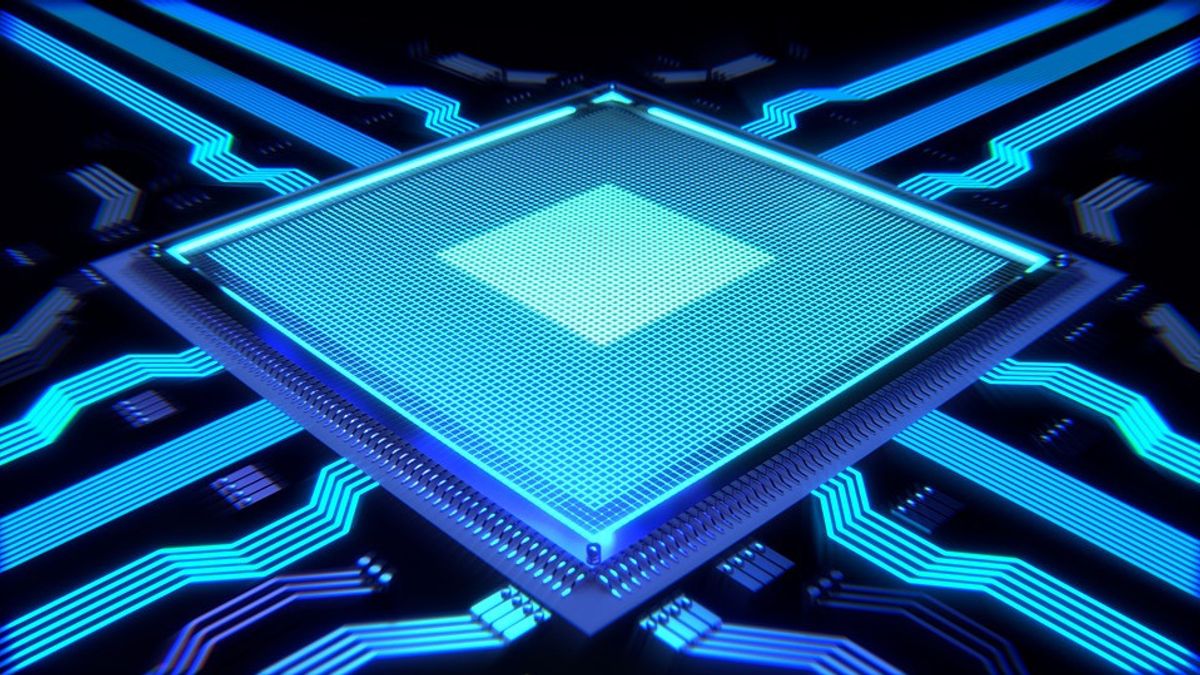JAKARTA – Computers that use light instead of electricity for processing, a few years ago were only seen as a research project. But it's now gaining huge traction after startups have been able to solve engineering challenges using photons in chips. The startup is now getting big funds to develop it.
In a recent example, Ayar Labs, a startup developing a technology called silicon photonics, said on Tuesday, April 26 that it had raised $130 million in funding from investors including chip giant Nvidia Corp.
While transistor-based silicon chips have increased computing power exponentially over the last few decades as transistors have reached several atomic widths, shrinking them further is a challenge. Not only is it difficult to make something really small, but as they get smaller, signals can flow between them.
So Moore's law, which says every two years the density of transistors on a chip will double and lower costs, is slowing, prompting the industry to seek new solutions to address the increasingly demanding computing needs of artificial intelligence.
According to data firm PitchBook, last year silicon photonics startups raised more than USD 750 million (IDR 10.8 trillion), double that of 2020. While in 2016 it only earned around USD 18 million (IDR 260.4 billion).
"AI is growing like crazy and taking over most of the data centers," Ayar Labs CEO Charles Wuischpard told Reuters. "The challenge of data movement and the energy consumption in that data movement is a very big problem."
The challenge is that many large machine learning algorithms can use hundreds or thousands of chips for computing. While there is a bottleneck in the speed of data transmission between chips or servers using current electrical methods.
Now “Light” has been used to transmit data over fiber optic cables, including undersea cables, for decades. But bringing this method to the chip level is difficult because the devices used to create the light or control it are not as simple as transistors.
PitchBook senior development technology analyst Brendan Burke expects silicon photonics to become common hardware in data centers by 2025 and expects the market to reach $3 billion (IDR 43.4 trillion) by then, similar in size to the AI graphics chip market in 2020.
In addition to connecting transistor chips, startups using silicon photonics to build quantum computers, supercomputers, and chips for self-driving vehicles are also raising big funds.
PsiQuantum has raised about $665 million (IDR 9.6 trillion) so far, although the promise of quantum computers to change the world is still years away.
Lightmatter, which builds processors using light to accelerate AI workloads in data centers, raised a total of $113 million (IDR 1.6 trillion) and will release its chips later this year and test with customers soon after.
VOIR éGALEMENT:
Luminous Computing, a startup that builds AI supercomputers using silicon photonics backed by Bill Gates, also raised a total of $115 million.
It's not just startups pushing this technology forward. Semiconductor manufacturers are also preparing to use their silicon chip manufacturing technology for photonics.
GlobalFoundries Head of Computing and Wired Infrastructure Amir Faintuch said the collaboration with PsiQuantum, Ayar, and Lightmatter has helped build a silicon photonic manufacturing platform for others to use. The platform was launched in March.
Peter Barrett, founder of venture capital firm Playground Global, an investor in Ayar Labs and PsiQuantum, believes in the long-term prospects for silicon photonics to accelerate computing, but says it's a long road ahead.
"What Ayar Labs do really well ... is they solve the problem of data interconnection for traditional high-performance (computing)," he said. "But it will be a long time before we have pure digital photonic computing for non-quantum systems.".
The English, Chinese, Japanese, Arabic, and French versions are automatically generated by the AI. So there may still be inaccuracies in translating, please always see Indonesian as our main language. (system supported by DigitalSiber.id)











